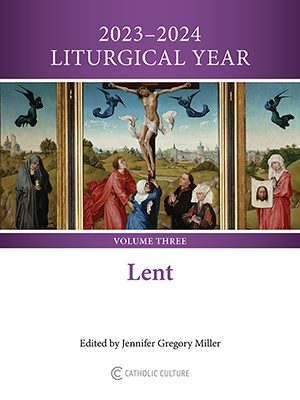Government and Same-Sex Marriage: Why?
By Dr. Jeff Mirus ( bio - articles - email ) | Dec 07, 2007
Irish justice minister Brian Lenihan has a plan to support same-sex couples. Speaking last Tuesday to the Gay Lesbian Equality Network, Lenihan said the administration of Prime Minister Bertie Ahern has committed itself to introducing new supportive legislation in March of 2008.
Lenihan pointed out that a piecemeal legislative strategy is necessary because full recognition of same-sex marriage is widely considered unconstitutional. Any attempt to change the constitution, he said, is likely to be “divisive and unsuccessful and, furthermore, would jeopardize the progress we have made over the last fifteen years.” So next year the government plans to introduce a provision permitting the registration of civil partnerships by same-sex couples, as well as a “redress scheme” which will provide for the disposition of property when a relationship ends.
One can only wonder what interest the government has in legally protecting the relationships of same-sex couples or legally providing for the proper disposition of the resulting community property. Any two (or more) persons who enter into agreements or choose to own property in common are protected and governed by any number of laws in the disposition of these agreements or properties. People can leave property to whomever they may designate in their wills. If two people decide voluntarily to share property, they can mutually agree on how to end the sharing. If agreement is impossible, they can have their differences arbitrated or adjudicated. As a general rule, the state has little interest in such ad hoc affairs except to prevent crimes.
In the personal realm, the great exception to this rule is marriage, which is special for four related reasons. First, children are necessary to the continuation of society, and well-raised children are necessary to society’s future harmony. Second, children are begotten and ideally raised in a stable partnership between their mother and their father. Third, in that partnership, both parties make sacrifices of potential individual income and property in favor of a community of resources in order to facilitate the raising of their family. Fourth, their children grow up within this community of resources and have a very real familial claim on that property when, for whatever reason, the original constitutive partnership dissolves.
But same-sex couples cannot beget children (nor, indeed, can they acquire them in any way without the active participation of the state), and in the absence of children there is nothing beyond their own preferences to compel them to make sacrifices of property or income to their joint project. There is nothing beyond personal preference which might leave either party economically more vulnerable. Nor is it possible for either party to become singly responsible for dependents engendered by their communitarian experiment. In a word, there is no ongoing familial interest whatsoever.
Clearly, legislation in favor of same-sex unions is not a matter of the state’s recognition and protection of the natural facts and institutions of our common life. To the contrary, it is the manufacture of new forms of community in which, apart from its own whimsy, the state can have no conceivable positive interest. Government will always be more beneficial to the community, as well as smaller and less expensive, if—even before asking why it should not do something—it can give a compelling answer to the simpler question of why it should.
All comments are moderated. To lighten our editing burden, only current donors are allowed to Sound Off. If you are a current donor, log in to see the comment form; otherwise please support our work, and Sound Off!









